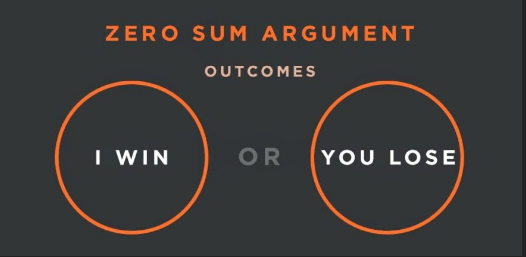In the echoing halls of modern discourse, where empathy once flourished as a bridge between diverging perspectives, a troubling trend has emerged. Empathy is increasingly being turned into a battleground where each side competes to prove their pain more legitimate and their privilege more oppressed. This zero-sum view of empathy reduces the rich complexity of human experiences to simplistic equations of suffering, where one’s gain is seen as another’s loss.
The Zero-Sum Empathy Game
Picture a team, once united in purpose, now fractured by the echoes of “my privilege outweighs your struggle.” It’s a scene where victimhood masquerades as arithmetic, each member tallying up grievances as if quantifying pain could somehow bring clarity to the complexity of human interaction. Yet, this flawed premise only serves to distort reality, blinding us to the intricate tapestry of intersecting identities and experiences that shape our world.
The Cost of Zero-Sum Empathy
In this zero-sum empathy game, everyone loses. The very essence of empathy, understanding and resonating with another’s experience, is sacrificed at the altar of narcissism and competition. Instead of fostering connection and understanding, it breeds resentment and division. Both sides dig deeper into their trenches, fortified by the belief that acknowledging someone else’s pain diminishes their own.
Envisioning a New Paradigm
But what if we dared to step beyond this binary view? What if we acknowledged that empathy is not a finite resource to be hoarded or traded, but an expansive landscape where multiple truths can coexist? The complexity of truth, inconvenient as it may be, offers us a richer, more nuanced perspective. It invites us to recognize that acknowledging someone else’s pain doesn’t diminish our own struggles, it enriches our understanding of the human experience.
Breaking Free from Zero-Sum Thinking
Imagine a conversation where empathy transcends the zero-sum game. Instead of comparing wounds, we listen with open hearts and minds. We recognize that privilege and oppression are not mere scales that balance each other out, but intersecting dimensions that shape our identities in profound ways. It’s an acknowledgment that someone else’s privilege doesn’t invalidate their struggles, just as someone else’s oppression doesn’t diminish our own challenges.
The Courage to Embrace Ambiguity
Breaking free from zero-sum empathy requires courage and humility. It demands confronting our biases and assumptions, embracing the discomfort of ambiguity and contradiction, and engaging in dialogue not as adversaries but as allies in the pursuit of mutual understanding.
Moving Forward Together
In the end, zero-sum empathy is not just boring, it’s dangerous. It perpetuates division and reinforces stereotypes, pushing us further apart instead of bringing us closer together. Let us instead strive for an empathy that transcends boundaries, that celebrates diversity and complexity, that honors the multiplicity of human experiences.
So, let us reclaim empathy from the grip of zero-sum thinking. Let us build bridges where there are walls, and seek common ground where there is discord. In doing so, we not only enrich our own lives but also contribute to a more compassionate and interconnected world, one where empathy flourishes as a force for positive change, rather than a tool for division.
